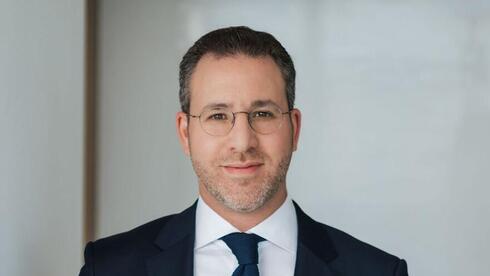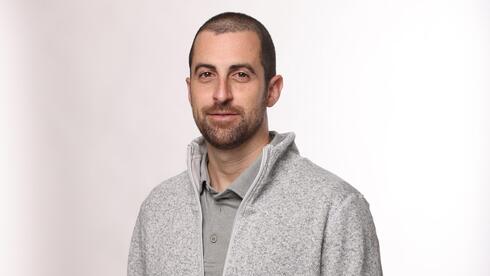
Netanyahu wanted an autocracy but ended up with a kakistocracy
Netanyahu's "big plan"—to undermine democracy in order to establish authoritarian single rule—was conceived long before the investigations and his trial. The devastating outcome: instead of single rule, he created a kakistocracy—the rule of the worst, explained Calcalist Publisher Yoel Esteron at the Forecasts Conference.
There are many Israelis who believe that Netanyahu decided to crush democracy to save himself from being convicted in court. This morning, I would like to suggest that his dream of establishing an authoritarian regime—an autocracy—was born long before the investigations that led to his trial, and even years before he brought the Kahanists and Smotrichs into his government. Netanyahu’s disillusionment with democracy began long before Yariv Levin emerged from obscurity.
All these pawns are not pushing him forward. On the contrary, he embraces them to execute his plot. The plot—autocracy instead of democracy—is his own, and it is nearing its tenth anniversary.
In February 2016, I wrote the following under the headline, Who Is in Favor of Eliminating Democracy:
"Netanyahu undermines and corrupts the foundations of democracy. He preys on high-ranking officials, weakens the gatekeepers, and appoints unworthy individuals whose primary virtue is their loyalty to Netanyahu’s interests. Their only mission is to eliminate any opposition to the one-man rule he is trying to establish. He incites and encourages incitement against various segments of the population—the entire Arab minority, the ‘Tel Aviv State’, human rights organizations, writers, artists, businesspeople, and senior officials in the economy who dare to oppose him, as well as members of the media who criticize him."
"In the same breath, he initiates or allows extremists within his camp to propose laws that pose a clear and present danger—laws that erode the foundations of democracy, undermine social equality, tarnish Israel’s reputation, mock the fight against corruption, and destroy secular education. The list is long. In his view, to 'save' the State of Israel, he seeks to weaken the political system while simultaneously reducing his party’s ministers to mere figureheads. At the same time, he works to erode public trust in civil servants and neutralize their ability to interfere with him. Lastly, he does everything possible to destroy the free media."
For clarity: these words were published in early 2016. Those who shared their anxiety about Netanyahu's "big plan" with me nearly a decade ago were staunch, honest right-wing individuals from his immediate circle. They spoke of him with reverence, agreeing with his views, but the "big plan" terrified them.
Those decent people are long gone. I recently spoke with one of them, who shared his regret: "I tried to warn people, but no one listened." He explained that Netanyahu sees the police, the prosecutor’s office, and the courts as obstacles to his efforts to "save" Israel. In Netanyahu’s view, if he is forced to step down, the state will collapse with him. The Kahanists and Smotrichs may be messianic, but the true "King Messiah" is Netanyahu himself.
We are now on the cusp of 2025. Has Netanyahu’s "big plan" succeeded in undermining and corrupting democracy over the past few years? Without a doubt. However, Netanyahu may have sought to create an autocracy but instead ended up with a kakistocracy. The term comes from Greek: kratos means rule, and kakistos means the worst.
When you look at Netanyahu’s government—from David Amsalem to Goldknopf, Shlomo Karhi to Yoav Kisch—it is evident that we are no longer a democracy but a kakistocracy. Observing the figures dominating the Knesset—from Tali Gottlieb to Nissim Vaturi—one suspects that Netanyahu handpicked them deliberately to create a kakistocracy. The worst are useful to him. This is how the most dangerous government and the most inept Knesset in Israel’s history have been formed.
And now, my modest forecast for 2025—because, after all, we are here at the Forecasts Conference. If we fail to oust Netanyahu and his kakistos in the next elections, the country will sink deeper in 2025. The necessary corrections in 2026 will be even more challenging.
That said, Israel is stronger than Netanyahu and will recover in the coming years, thanks to the incredible people who live, contribute, fight, and create here. However, the price of this kakistocracy is rising daily, and it is devastating.
What must be done to begin the process of repair and restoration? A state commission of inquiry, though essential and overdue, will not suffice. Such inquiries take years, and their conclusions often end up discarded—like the findings of the Meron disaster committee.
Therefore, those who seek correction and restoration must not disperse. Instead, they should focus on one goal: elections. A clear decision at the ballot box. Not "after the war" and certainly not in October 2026. Elections now. This is the only chance for optimism. This is our only chance.
Yoel Esteron is Calcalist's publisher and co-founder of Shomrim.














